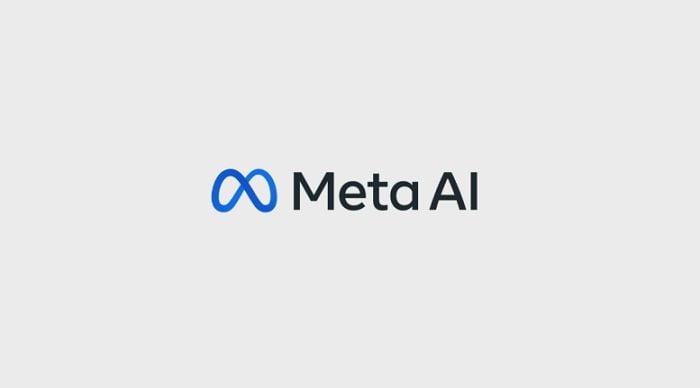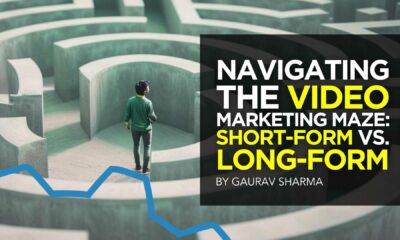SOCIAL
Meta Provides Explicit Controls for Users to Remove Their Data From Generative AI Training Sets

As the use of generative AI tools continues to rise, Meta is adding some new controls that’ll enable users to opt out of having their personal data included in AI model training, via a new form on its Privacy Center hub.
As you can see in this form, Meta will now enable users to “delete any personal information from third parties used for generative AI” via a simple form feedback process, which will provide more control over such for regular users.
Meta has also added a new generative AI overview in its Privacy Center, which includes a broad description of the various ways in which generative AI models are trained, and the part that your Meta data can play in that process.
As per Meta:
“Since it takes such a large amount of data to teach effective models, a combination of sources are used for training. These sources include information that is publicly available online and licensed information, as well as information from Meta’s products and services. When we collect public information from the internet or license data from other providers to train our models, it may include personal information. For example, if we collect a public blog post it may include the author’s name and contact information. When we do get personal information as part of this public and licensed data that we use to train our models, we don’t specifically link this data to any Meta account.”
Based on this, Meta’s looking to increase people’s awareness, and control over such usage.
“We have a responsibility to protect people’s privacy and have teams dedicated to this work for everything we build. We have a robust internal Privacy Review process that helps ensure we are using data at Meta responsibly for our products, including generative AI. We work to identify potential privacy risks that involve the collection, use or sharing of personal information and develop ways to reduce those risks to people’s privacy.”
The update comes as the new EU DSA rules come into effect, which will also provide more control over personal data, and how it’s used by online platforms. As such, it could be that Meta’s looking to get ahead of the next EU provisions with this update, with the DSA already specifying that social platforms need to provide more data control options as standard in their apps.
It seems inevitable that generative AI usage will also be incorporated into the same, while many artists are also pushing for new laws that would enable them to remove their works from the training sets for AI models.
Though it remains a legal gray area. The use of publicly available content to create something new, even if that new creation is derivative, is not a consideration that’s been built into copyright law as such, and it’ll take some time, and various test cases, to update the rules around unintended or undesired use. As such, providing the option for people to remove their own information, and work, will become a much bigger focus moving forward, which Meta is looking to get ahead of the curve on here.
Meta also notes that it’s looking to make a bigger push into generative AI soon.
“We’re investing so much in this space because we believe in the benefits that generative AI can provide for creators and businesses around the world. To train effective models to unlock these advancements, a significant amount of information is needed from publicly available and licensed sources. We keep training data for as long as we need it on a case-by-case basis to ensure an AI model is operating appropriately, safely and efficiently. We also may keep it to protect our or other’s interests, or comply with legal obligations.”
You can expect the usage regulations around generative AI to evolve fast, especially now that the highly litigious record publishing industry is involved.
With that in mind, it makes sense for Meta to get ahead of the next big shift.
You can read Meta’s full “Privacy and Generative AI” data usage overview here.
SOCIAL
Snapchat Explores New Messaging Retention Feature: A Game-Changer or Risky Move?

In a recent announcement, Snapchat revealed a groundbreaking update that challenges its traditional design ethos. The platform is experimenting with an option that allows users to defy the 24-hour auto-delete rule, a feature synonymous with Snapchat’s ephemeral messaging model.
The proposed change aims to introduce a “Never delete” option in messaging retention settings, aligning Snapchat more closely with conventional messaging apps. While this move may blur Snapchat’s distinctive selling point, Snap appears convinced of its necessity.
According to Snap, the decision stems from user feedback and a commitment to innovation based on user needs. The company aims to provide greater flexibility and control over conversations, catering to the preferences of its community.
Currently undergoing trials in select markets, the new feature empowers users to adjust retention settings on a conversation-by-conversation basis. Flexibility remains paramount, with participants able to modify settings within chats and receive in-chat notifications to ensure transparency.
Snapchat underscores that the default auto-delete feature will persist, reinforcing its design philosophy centered on ephemerality. However, with the app gaining traction as a primary messaging platform, the option offers users a means to preserve longer chat histories.
The update marks a pivotal moment for Snapchat, renowned for its disappearing message premise, especially popular among younger demographics. Retaining this focus has been pivotal to Snapchat’s identity, but the shift suggests a broader strategy aimed at diversifying its user base.
This strategy may appeal particularly to older demographics, potentially extending Snapchat’s relevance as users age. By emulating features of conventional messaging platforms, Snapchat seeks to enhance its appeal and broaden its reach.
Yet, the introduction of message retention poses questions about Snapchat’s uniqueness. While addressing user demands, the risk of diluting Snapchat’s distinctiveness looms large.
As Snapchat ventures into uncharted territory, the outcome of this experiment remains uncertain. Will message retention propel Snapchat to new heights, or will it compromise the platform’s uniqueness?
Only time will tell.
SOCIAL
Catering to specific audience boosts your business, says accountant turned coach

While it is tempting to try to appeal to a broad audience, the founder of alcohol-free coaching service Just the Tonic, Sandra Parker, believes the best thing you can do for your business is focus on your niche. Here’s how she did just that.
When running a business, reaching out to as many clients as possible can be tempting. But it also risks making your marketing “too generic,” warns Sandra Parker, the founder of Just The Tonic Coaching.
“From the very start of my business, I knew exactly who I could help and who I couldn’t,” Parker told My Biggest Lessons.
Parker struggled with alcohol dependence as a young professional. Today, her business targets high-achieving individuals who face challenges similar to those she had early in her career.
“I understand their frustrations, I understand their fears, and I understand their coping mechanisms and the stories they’re telling themselves,” Parker said. “Because of that, I’m able to market very effectively, to speak in a language that they understand, and am able to reach them.”Â
“I believe that it’s really important that you know exactly who your customer or your client is, and you target them, and you resist the temptation to make your marketing too generic to try and reach everyone,” she explained.
“If you speak specifically to your target clients, you will reach them, and I believe that’s the way that you’re going to be more successful.
Watch the video for more of Sandra Parker’s biggest lessons.
SOCIAL
Instagram Tests Live-Stream Games to Enhance Engagement

Instagram’s testing out some new options to help spice up your live-streams in the app, with some live broadcasters now able to select a game that they can play with viewers in-stream.
As you can see in these example screens, posted by Ahmed Ghanem, some creators now have the option to play either “This or That”, a question and answer prompt that you can share with your viewers, or “Trivia”, to generate more engagement within your IG live-streams.
That could be a simple way to spark more conversation and interaction, which could then lead into further engagement opportunities from your live audience.
Meta’s been exploring more ways to make live-streaming a bigger consideration for IG creators, with a view to live-streams potentially catching on with more users.
That includes the gradual expansion of its “Stars” live-stream donation program, giving more creators in more regions a means to accept donations from live-stream viewers, while back in December, Instagram also added some new options to make it easier to go live using third-party tools via desktop PCs.
Live streaming has been a major shift in China, where shopping live-streams, in particular, have led to massive opportunities for streaming platforms. They haven’t caught on in the same way in Western regions, but as TikTok and YouTube look to push live-stream adoption, there is still a chance that they will become a much bigger element in future.
Which is why IG is also trying to stay in touch, and add more ways for its creators to engage via streams. Live-stream games is another element within this, which could make this a better community-building, and potentially sales-driving option.
We’ve asked Instagram for more information on this test, and we’ll update this post if/when we hear back.
-

 MARKETING6 days ago
MARKETING6 days agoEffective Communication in Business as a Crisis Management Strategy
-

 SEARCHENGINES7 days ago
SEARCHENGINES7 days agoGoogle Won’t Change The 301 Signals For Ranking & SEO
-

 SEO6 days ago
SEO6 days agobrightonSEO Live Blog
-

 PPC7 days ago
PPC7 days ago9 Ecommerce Trends to Boost Your Business in 2024
-

 SEO5 days ago
SEO5 days agoGoogle March 2024 Core Update Officially Completed A Week Ago
-
SEARCHENGINES6 days ago
Daily Search Forum Recap: April 25, 2024
-

 WORDPRESS5 days ago
WORDPRESS5 days ago9 Best WooCommerce Multi Vendor Plugins (Compared)
-

 WORDPRESS6 days ago
WORDPRESS6 days agoYour New Favorite Way to Develop WordPress Locally – WordPress.com News






![The Current State of Google’s Search Generative Experience [What It Means for SEO in 2024] person typing on laptop with](https://articles.entireweb.com/wp-content/uploads/2024/04/The-Current-State-of-Googles-Search-Generative-Experience-What-It.webp-400x240.webp)
![The Current State of Google’s Search Generative Experience [What It Means for SEO in 2024] person typing on laptop with](https://articles.entireweb.com/wp-content/uploads/2024/04/The-Current-State-of-Googles-Search-Generative-Experience-What-It.webp-80x80.webp)






